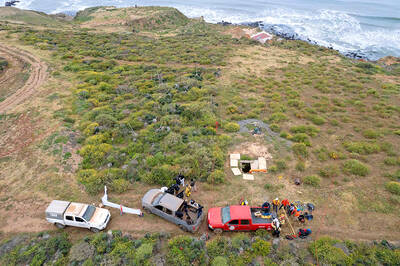The US wants a special forces cooperation agreement with Sri Lanka to sidestep bureaucracy and has no intention of setting up a military base in the country, the US ambassador to the nation said in a television interview.
The comments are the latest attempt by US Ambassador to Sri Lanka and Maldives Alaina B. Teplitz to assuage concerns over US involvement in the Indian Ocean island after plans to sign a Status of Forces Agreement by the two countries was heavily criticized by local media and some political analysts who see it as a threat to Sri Lanka’s sovereignty.
Also called the Visiting Forces Agreement (VFA), it would establish the framework for US military personnel visiting Sri Lanka at the invitation of the government and is still being negotiated by both nations, Teplitz told state-run television channel Rupavahini in an interview late on Saturday.
“The visiting forces agreement is an update to an existing agreement and it is designed to address a number of red tape issues,” Teplitz said.
Giving the example of the 2017 floods in Sri Lanka, Teplitz said the government had sought help from the US and it brought in relief supplies, but the aeroplanes transporting them required clearance from the government.
She said the agreement would allow the US to speed up these procedures, so that when there is an emergency “we don’t spend time to cut through the red tape.”
Sri Lanka sits near one of the world’s busiest shipping routes in the Indian Ocean and over the past several years China has become a major investor, building ports and highways there.
India, which is just next door, is starting to push back against China’s growing influence and so are the US and Japan, experts say.
Teplitz earlier this week dismissed the idea that the military pact had anything to do with China.
“China has nothing to do with the VFA; this is all about the long-standing bilateral partnership with Sri Lanka,” she said during a live Facebook chat on Wednesday.
She said the US and Sri Lanka have to renegotiate certain administrative issues around entry and exit of military personnel before every single training or ship visit, which takes up a lot of time.
The agreement lays down rules for the benefit of both countries, “meaning no base, no permanent presence of US troops,” Teplitz said, adding that Sri Lanka retains the right to approve or deny all entry of people, vessels and aircraft.
The debate on the need to have such an agreement has taken center stage, especially after attacks on Easter Sunday, and is driving a deeper wedge between Sri Lankan President Sirisena Maithripala and Prime Minister Ranil Wickremesinghe, who are already at loggerheads.
Sirisena said earlier this month that he would not sign any military cooperation deals that are “unsuitable for the country.”
Days later Wickremesingh told the parliament that negotiations were still on with the US to agree on a pact, but he too would not agree to anything that challenges Sri Lanka’s sovereignty.

With the midday sun blazing, an experimental orange and white F-16 fighter jet launched with a familiar roar that is a hallmark of US airpower, but the aerial combat that followed was unlike any other: This F-16 was controlled by artificial intelligence (AI), not a human pilot, and riding in the front seat was US Secretary of the Air Force Frank Kendall. AI marks one of the biggest advances in military aviation since the introduction of stealth in the early 1990s, and the US Air Force has aggressively leaned in. Even though the technology is not fully developed, the service is planning

Le Tuan Binh keeps his Moroccan soldier father’s tombstone at his village home north of Hanoi, a treasured reminder of a man whose community in Vietnam has been largely forgotten. Mzid Ben Ali, or “Mohammed” as Binh calls him, was one of tens of thousands of North Africans who served in the French army as it battled to maintain its colonial rule of Indochina. He fought for France against the Viet Minh independence movement in the 1950s, before leaving the military — as either a defector or a captive — and making a life for himself in Vietnam. “It’s very emotional for me,”

INTERNATIONAL PROBE: Australian and US authorities were helping coordinate the investigation of the case, which follows the 2015 murder of Australian surfers in Mexico Three bodies were found in Mexico’s Baja California state, the FBI said on Friday, days after two Australians and an American went missing during a surfing trip in an area hit by cartel violence. Authorities used a pulley system to hoist what appeared to be lifeless bodies covered in mud from a shaft on a cliff high above the Pacific. “We confirm there were three individuals found deceased in Santo Tomas, Baja California,” a statement from the FBI’s office in San Diego, California, said without providing the identities of the victims. Australian brothers Jake and Callum Robinson and their American friend Jack Carter

Indian Prime Minister Narendra Modi reaffirmed his pledge to replace India’s religion-based marriage and inheritance laws with a uniform civil code if he returns to office for a third term, a move that some minority groups have opposed. In an interview with the Times of India listing his agenda, Modi said his government would push for making the code a reality. “It is clear that separate laws for communities are detrimental to the health of society,” he said in the interview published yesterday. “We cannot be a nation where one community is progressing with the support of the Constitution while the other